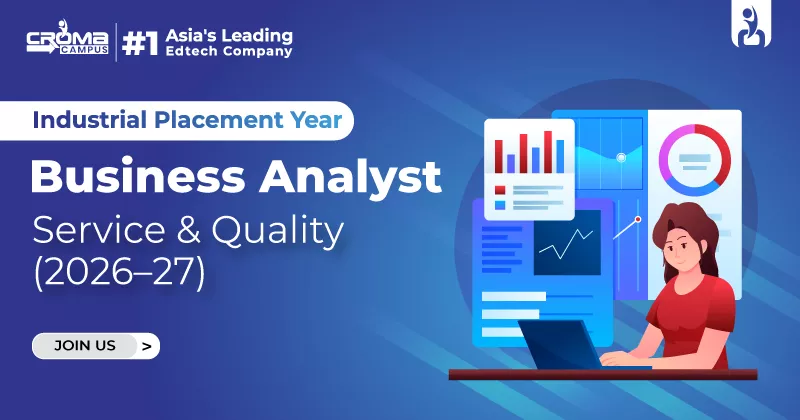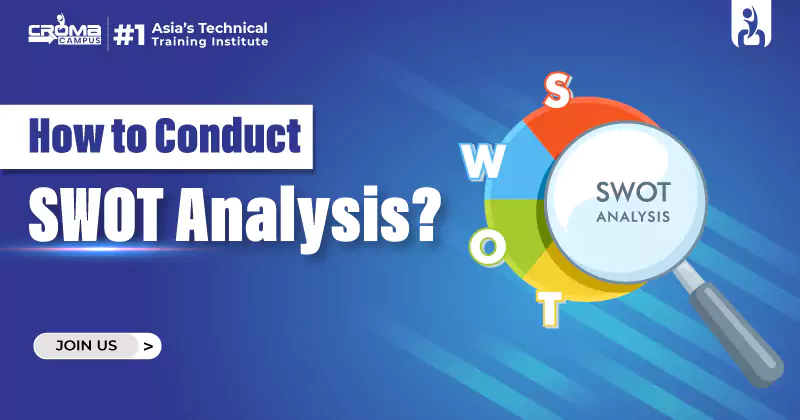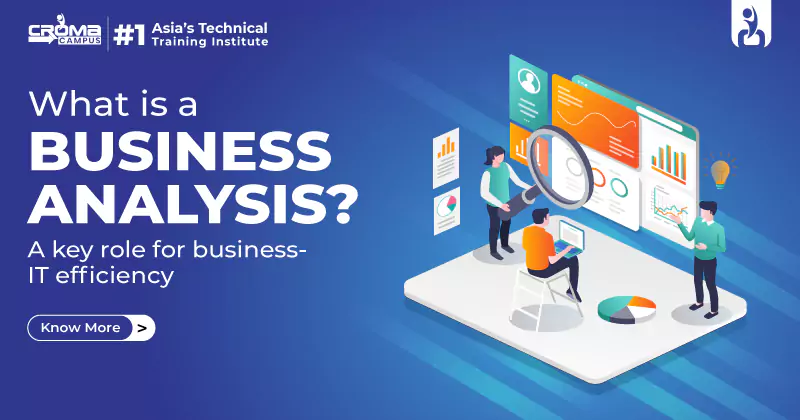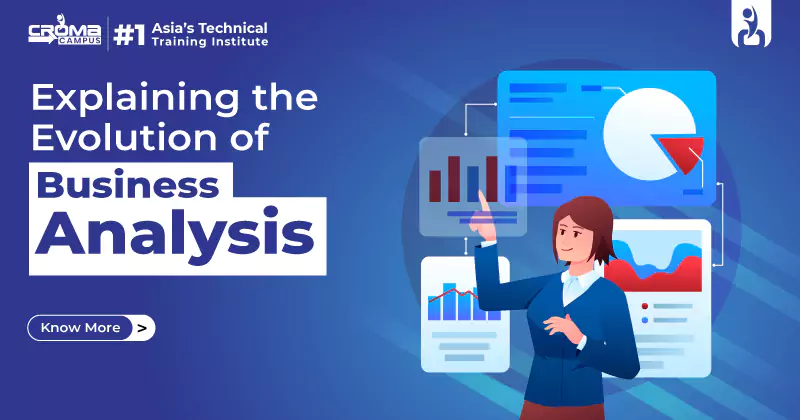What Is Business Analysis? A Key Role For Business-IT Efficiency
4.8 out of 5 based on 8478 votesLast updated on 29th Jan 2024 13.8K Views
- Bookmark

Unlock business-IT efficiency with crucial insights. Explore the key role of Business Analysis for strategic growth and optimization.

Introduction
In the dynamic landscape of modern business, organizations face the perpetual challenge of aligning their business objectives with Information Technology (IT) solutions. This complex endeavour is where the role of the Business Analysis Course emerges as a critical force in bridging the gap between business needs and technological capabilities.
Let's now have a look at the multifaceted nature of Business Analysis and its pivotal role in enhancing business-IT efficiency.
The Real Worth of Business Analysis
At its core, Business Analysis is a disciplined approach to identifying business needs and finding solutions to various business challenges. It involves understanding the intricacies of an organization, analyzing processes, and recommending effective strategies for improvement. Business Analysts serve as catalysts for positive change, acting as a liaison between stakeholders and IT professionals to ensure that technological solutions align with business goals.
Business-IT alignment is the harmonious integration of business strategy and IT capabilities. It is the seamless collaboration between these two realms that enables organizations to leverage technology for strategic advantage. Business Analysis plays a pivotal role in achieving this alignment by comprehensively understanding the business landscape, identifying areas for improvement, and ensuring that IT solutions are tailored to meet specific business objectives.
Key Responsibilities of Business Analysts
Business Analysts wear many hats in the pursuit of business-IT efficiency. They are responsible for requirements gathering, stakeholder communication, process modelling, and ensuring that proposed solutions address the identified business needs. Additionally, Business Analysts play a crucial role in facilitating communication between business leaders and IT professionals, translating technical jargon into understandable terms for all stakeholders.
- Requirements Elicitation and Analysis:
A cornerstone of Business Analysis is the process of requirements elicitation and analysis. Business Analysts work closely with stakeholders to understand their needs, document requirements, and analyze these requirements to derive actionable insights. By effectively capturing the essence of business needs, Business Analysts pave the way for the development of IT solutions that precisely address organizational challenges.
- Process Improvement and Optimization:
Business Analysis is inherently linked to process improvement. Analysts scrutinize existing business processes, identifying inefficiencies, bottlenecks, and areas for enhancement. Through careful analysis and collaboration with stakeholders, Business Analysts recommend improvements and optimizations, ensuring that IT solutions align with streamlined and efficient business processes.
- Facilitating Change Management:
Introducing new IT solutions often entails significant organizational change. Business Analysts play a vital role in facilitating change management by anticipating the impact of technological changes on people, processes, and organizational culture. They work closely with stakeholders to ensure a smooth transition, fostering acceptance and adaptation to new systems and processes.
- Data-Driven Decision-Making:
In the era of big data, Business Analysis leverages data-driven insights to inform decision-making processes. Analysts use data to identify trends, forecast future needs, and support strategic decision-making. This data-centric approach ensures that IT solutions are not only aligned with current business requirements but are also future-proofed against emerging trends and challenges.
- Enabling Innovation:
Business Analysts are instrumental in fostering innovation within organizations. By continuously evaluating industry trends, technological advancements, and emerging opportunities, they contribute to the identification of innovative solutions that can give businesses a competitive edge. This proactive approach ensures that IT solutions are not merely reactive but positioned to drive innovation and growth.
- Effective Communication and Collaboration:
The success of Business Analysis lies in effective communication and collaboration. Analysts must bridge the communication gap between technical and non-technical stakeholders, ensuring that everyone involved has a shared understanding of business goals and IT solutions. This collaborative approach fosters a culture of transparency and teamwork, essential for achieving business-IT efficiency.
- Continuous Improvement:
Business Analysis is an iterative process. As organizations evolve, so do their business needs and technological requirements. Business Analysts engage in continuous improvement, regularly reassessing business processes, eliciting updated requirements, and ensuring that IT solutions evolve to meet the ever-changing demands of the business landscape.
Also Read This Post :
Top Certification Courses For Business Analysts
Top High Paying Jobs In Business Analysis Domain
Let’s now move ahead, and know the skills of a Business Analyst.
Business Analyst Skills
- Analytical Thinking: The ability to break down complex problems, analyze data, and identify key insights to inform decision-making.
- Communication Skills: Effective verbal, written, and presentation skills to convey information clearly to diverse stakeholders.
- Problem-Solving: A systematic and creative mind set for identifying, analyzing, and proposing solutions to business challenges.
- Requirements Elicitation: Proficiency in gathering and documenting clear and concise business requirements from stakeholders.
- Business Process Modelling: Skill in visually representing and analyzing business processes using modelling techniques.
- Data Analysis:Competency in collecting, processing, and analyzing data to derive meaningful insights.
- Stakeholder Management: Ability to identify, engage, and manage relationships with various project stakeholders.
- Critical Thinking: Evaluating information objectively, considering alternatives, and making informed decisions.
- Facilitation Skills:Leading and facilitating meetings, workshops, and discussions with stakeholders.
- Adaptability: Openness and flexibility in the face of change, adapting to evolving business environments and project requirements.
- IT Knowledge: Foundational understanding of Information Technology, including systems, databases, and software development processes.
- Negotiation Skills: Ability to negotiate and find common ground among diverse stakeholders with conflicting interests.
- Business Acumen: Understanding the broader business context, including industry trends, market dynamics, and organizational goals.
Other Related Courses:
Conclusion
In the quest for business-IT efficiency, Business Analysis Course in Delhi emerges as a linchpin, offering a systematic and strategic approach to aligning business goals with technological solutions. By fostering effective communication, driving process improvements, and enabling innovation, Business Analysts play a key role in ensuring that organizations leverage technology to its full potential. As businesses navigate the complexities of the digital age, the role of Business Analysis continues to evolve, proving indispensable for those seeking to harness the power of IT in achieving their strategic objectives.
Subscribe For Free Demo
Free Demo for Corporate & Online Trainings.










.jpg)














.webp)
.webp)

.png)















